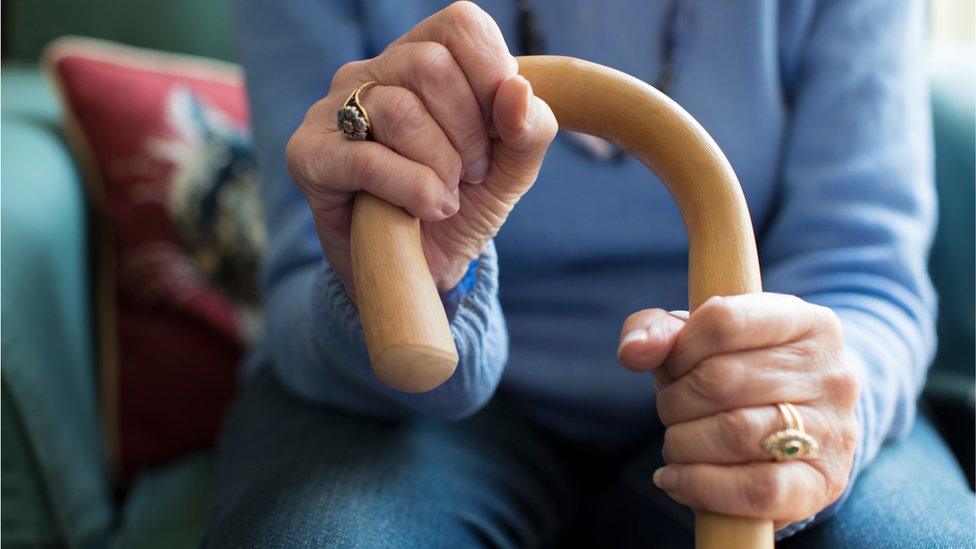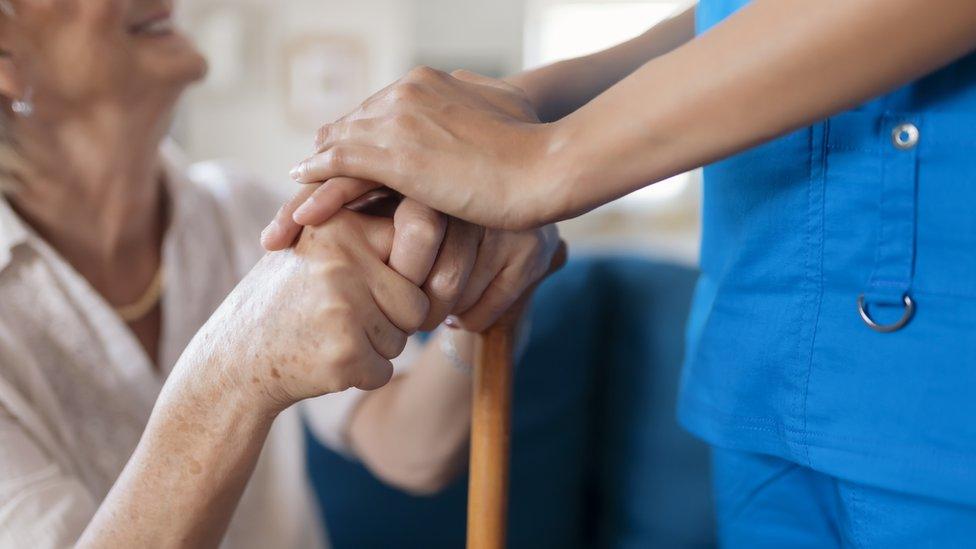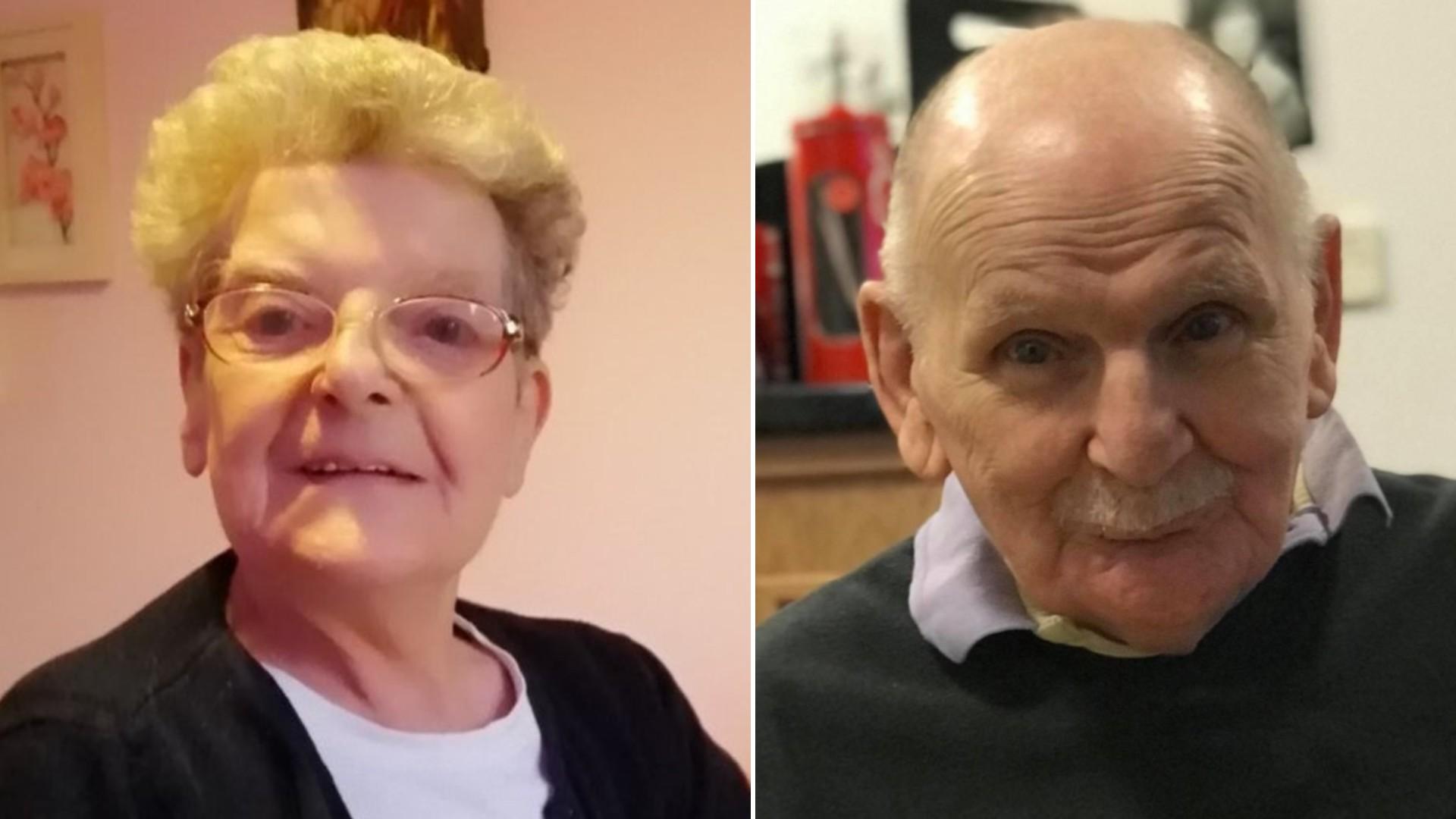Legal concerns over hospital patients moved to care homes
- Published

The Mental Welfare Commission has found cases where there was no legal authority for patients being moved.
Legal concerns have been raised over the movement of hospital patients into care homes in Scotland at the height of the Covid pandemic.
The Mental Welfare Commission studied a sample of discharges when someone did not have the capacity to decide for themselves.
They found some cases where there was no legal authority for the move.
The commission also said it had found "endemic" examples of poor practice.
More than 10,000 deaths where Covid was listed on the death certificate, external have been recorded in Scotland - 33% of these have been in care homes while 60% were in hospitals.
Last month Public Health Scotland said it "cannot rule out" a link between hospital discharges and outbreaks in care homes, with nearly a third of homes experiencing an outbreak.
The commission studied the detail of 457 moves between March to May 2020 - about 10% of the number reported at the time by Public Health Scotland.
It found 20 of those to have been unlawful and that a number were related to the pandemic.
Staff 'not fully aware' of the law
One case included a misinterpretation that the Social Work Act had been enacted as a result of the Coronavirus (Scotland) Act 2020.
However, the Social Work Act was never activated and removed in September that year.
In another instance, a Health and Social Care Partnership (HSCP) introduced alternative applications for guardianship orders, making decisions "internally" instead of referring the matter to the courts.
Again, the commission found this started in response to the pandemic and ended in August 2020.
A total of 338 moves were said to have been authorised using Welfare Power of Attorney or Adults with Incapacity legislation.
The commission found those working in hospital discharge were not fully aware of the powers held by attorneys or guardians in 78 out of 267 cases.
Care home placement also caused confusion in some cases, the report suggested, where someone was admitted to a care home but remained liable for their property.
The report made eight recommendations for HSCPs, including making sure staff understand the law through training.
It urged the Care Inspectorate to take account of the report in its inspection activity, and the Scottish government to monitor the delivery of the recommendations.
Poor practice 'endemic'
The commission's chief executive Julie Paterson said that while some concerns related to the "significant pressures" of the pandemic, it "worryingly" found "endemic examples of poor practice".
She said: "Lack of understanding of the law, lack of understanding of good practice, confusion over the nature of placements, misunderstanding over power of attorney.
"These findings are very disappointing and may mean that many more moves were made without valid legal authority.
"This report also finds a lack of uniformity from one HSCP to another, with different approaches to national legislation and guidance adopted in different areas."
The Care Inspectorate welcomed the chance to "consider findings carefully" and said it would take recommendations forward.
A Scottish government spokesperson said it was working with HSCPs to improve progress and to share good practice.


Related topics
- Published19 April 2021

- Published28 July 2020
